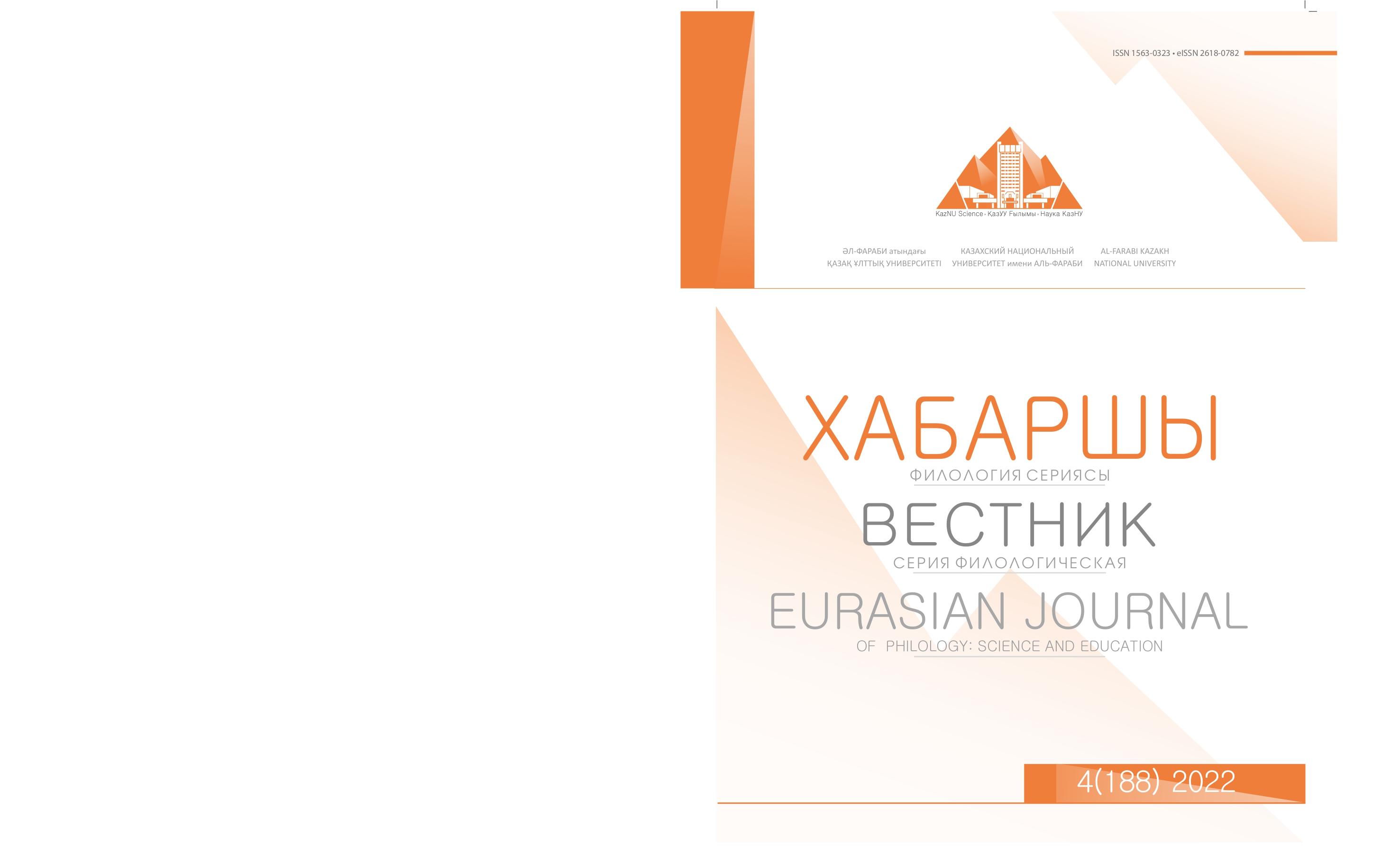Axiological content of phraseological units
DOI:
https://doi.org/10.26577/EJPh.2022.v188.i4.04Abstract
The article is dedicated to the analysis of the axiological content of phraseological units expressing the value of Happiness in the Russian and Kazakh languages. The value system is associated with paremias and phraseological units, therefore, axiology is reflected in phraseology. An “axiological phraseological dyad” is distinguished when studying phraseological units within the axiological aspect, and this includes phraseological units with the semantics interconnected with the values accepted and the same with the semantics correlating with the anti-values accepted. Russian paremiology mostly reflects the negative aspects of understanding the Happiness, not conditioned etymologically but traditional for the ordinary Russian mentality, which is largely determined by extralinguistic factors and features of Russian cultural and historical development. In common Russian consciousness, there are deeply rooted views on Happiness as a condition (or synonym) for wealth, luck and a certain privilege, the result of labor, personal merits of a person. At the same time, Russian common self-awareness is characterized by the perception of Happiness as a kind of unpredictable, unreliable element that causes negative feelings. Happiness for the Kazakh language is fate, luck and family happiness, unity and health. It is measured with the courage, the courage of a man, his fame, the presence of cattle and its quantity. The value of “happiness/счастье/bakyt” in the language has a constantly developing vector within the process of expanding the associative perception of a person and the sphere of contextual connections and the field of sem.






